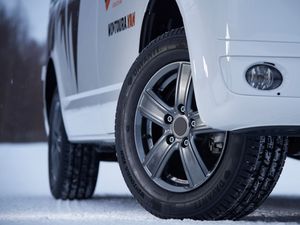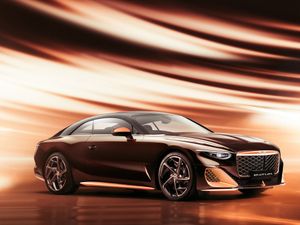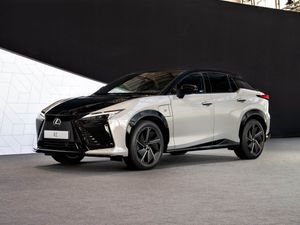UK Drive: Honda’s flagship CR-V gets bigger and more luxurious
The CR-V is one of Honda’s most successful models. Now in its sixth-generation, has it lost its mojo? Cameron Richards finds out.

What is it?

CR-V has stood for Comfortable Recreational Vehicle ever since the original car went on sale almost three decades ago. Honda’s largest SUV was one of the first cars in this sector behind Toyota’s very successful and quirky RAV4.
A practical, high-riding and versatile SUV, the CR-V has been a global success for Honda, having sold more than 10 million units since its first introduction. This sixth-generation car was launched in 2023 and is up against some very competitive opposition from South Korea and its home market, Japan.
What’s new?

This new model is bigger, longer and wider than the previous iteration, while there is also a new interior with more equipment as standard and an exterior which adopts Honda’s new design language with its large honeycomb-styled front grille and wrap-around front headlights.
The most important feature to talk about on this latest CR-V is that you can now get it with a plug-in-hybrid powertrain – which is what our test car has.
The CR-V plug-in-hybrid completes the set of hybridised Honda SUVs in the UK and is just the beginning of future electrified models to come later down the line.
What’s under the bonnet?

There is one engine on offer – though it’s offered with two stages of electrification. You can either have the hybrid version or the plug-in-hybrid variant. Both models come with a 2.0-litre-four-cylinder petrol engine, which is the same that is found in its smaller sibling, the ZR-V. It produces 181bhp and can do 0-60mph in 8.8 seconds as well as giving 335Nm of torque.
Regular hybrid versions of the CR-V come as standard with all-wheel–drive whereas the plug-in-variant like our test car only sends its power to the front wheels.
The plug-in-hybrid also benefits from a 17.7kWh battery that gives it a claimed electric driving range of around 50 miles.
What’s it like to drive?

To drive, the CR-V lives up to its name in the fact that comfort is the main priority. Behind the wheel, the car feels large while the steering is quite heavy – though not enough to make it unpleasant. The ride is smooth and it doesn’t crash over potholes while the engine’s pickup is good and thanks to the electric motor, driving around town is a very quiet affair.
The engine doesn’t groan too much under heavy acceleration and our test car achieved 50.9 mpg during our time with it. Wind and road noise are kept to a minimum and there is a lot of glass making it easy to see out of – inspiring confidence at those tricky junctions.
But, although it may be easy to drive, due to its sheer size, manoeuvring around town is tricky and when it comes to handling, the car rolls around a lot.
Our test car came with a 360-degree view camera and side monitor which works well when parking, but the side monitor only has a camera projection from the passenger side and not the driver which is frustrating.
How does it look?

Though big, the last couple of generations of CR-V has had a curved yet boxy profile. This new model is more boxy and although looks are subjective, it’s not as attractive as the models that went before it.
The exhaust does protrude out of the rather fake-looking exhaust tips, but, on the other side has a blanking plate which looks cheap and nasty.
The top-of-the-range car also comes with body-coloured wheel arch trims and our car had black alloy wheels which gave it a sportier look.
What’s it like inside?

On the inside the dashboard is almost identical to the ZR-V which is a good place to start as the materials used are of high quality with a lot of soft-touch plastics.
The seats are comfortable and have plenty of adjustment to them while the physical controls for the heating and ventilation make them easy to use on the move. The infotainment screen, although basic, is fairly easy to operate and there is plenty of storage including a large centre armrest, door pockets and massive cup holders.
In the back is where the CR-V shines, as the rear doors open to 90 degrees making it very easy to get inside and the rear seats can recline with up to 10 different positions. The floor is completely flat with no transmission tunnel making it easier for a middle passenger to sit comfortably.
What is rare is the PHEV version comes with a bigger boot than the standard car with a capacity of 617 litres with the seats in place (596 litres for the hybrid) and that extends to 1,710 litres with them folded down. Unfortunately, the seats do not fold down completely flat.
The Honda beats its direct rival from Toyota with the RAV4’s boot space a tad smaller at 580 litres for the former and just 1,180 litres for the latter.
What’s the spec like?

Here in the UK, the Honda is available in two trim levels for the hybrid and one for the PHEV version.
The entry-level Elegance starts at £45,930 and comes with a panoramic glass roof, front and rear parking sensors and a reversing camera. The Advance comes in at £49,030 and boasts a heated steering wheel, head up display, electric front seats with memory function and the 360-degree camera.
Our test car was the top-of-the-line PHEV in Advance Tech trim which starts at a rather hefty £53,995 and not only comes with the added benefit of the plug-in hybrid powetrain but also adds the Honda Parking Pilot function and 18-inch black alloy wheels.
Verdict
To conclude, the Honda CR-V is a great car for those looking for a well-equipped, practical and versatile SUV.
It drives well, and it’s very fuel-efficient for such a big car, which we were impressed with.
Its sheer size may put people off and it’s very expensive compared to its main rival, which starts over £6,000 less.
However, the CR-V lives on with a reliable and practical reputation that will attract many buyers who are loyal to the Honda family and people who need a larger car with lower running costs.





